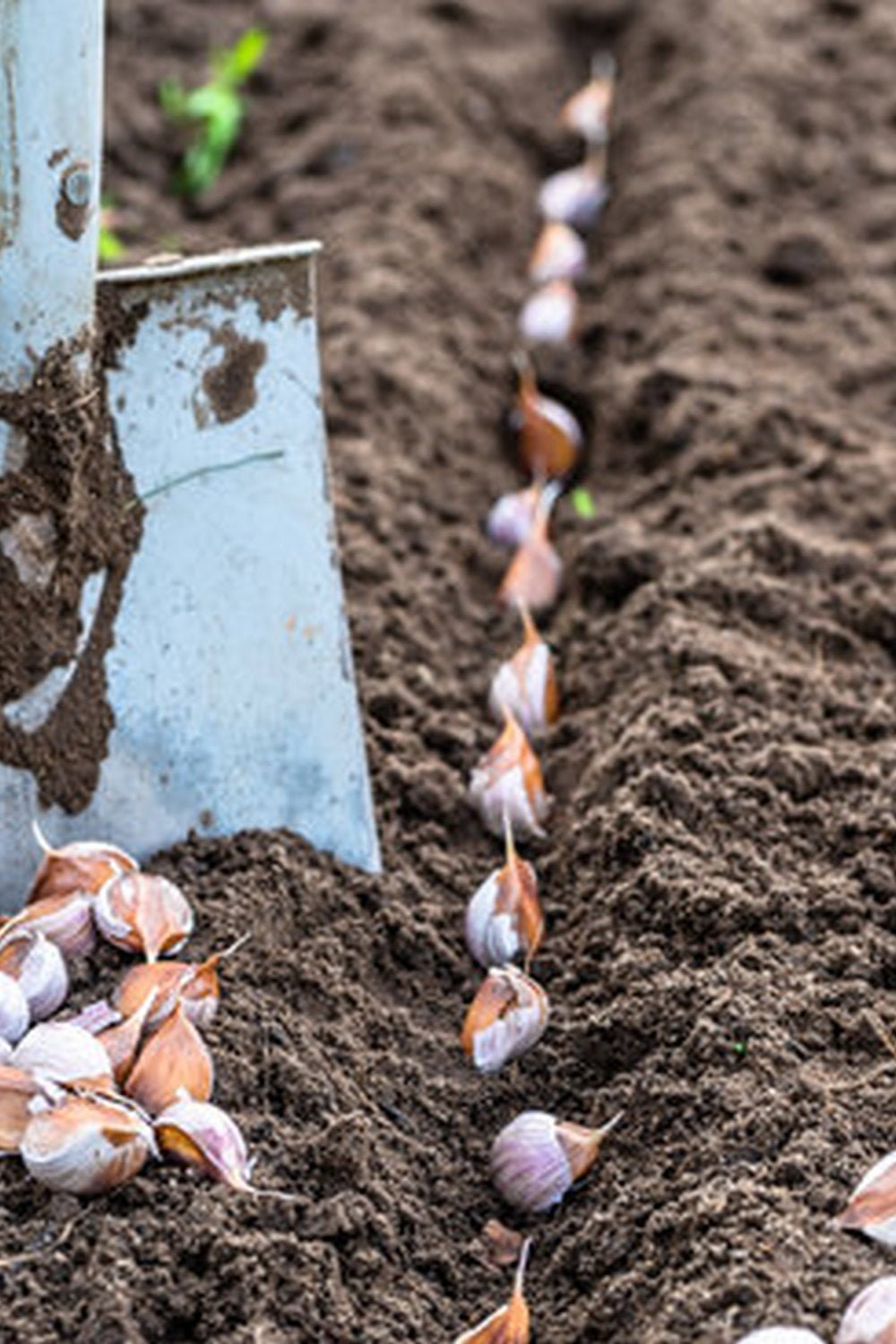Is chicken manure good for vegetable gardens? Chicken manure has long been recognized as an excellent source of nutrients for vegetable gardens, providing essential elements for plant growth and soil health.
Understanding the nutrient content of chicken manure, proper composting techniques, potential risks, and the best vegetables to grow using chicken manure as fertilizer are important considerations for gardeners looking to maximize their harvest. By incorporating sustainable practices for chicken manure management, you can ensure a healthy and bountiful vegetable garden while minimizing environmental impact.
Chicken manure is a rich source of nitrogen, phosphorus, and potassium, making it an ideal organic fertilizer for vegetable gardens. These nutrients are essential for promoting healthy plant growth and improving soil fertility. Properly composting chicken manure can also help reduce the risk of introducing harmful pathogens or overwhelming your plants with high levels of ammonia.
When using chicken manure in vegetable gardens, it’s important to consider potential risks and take precautions to avoid nutrient imbalances or contamination. Additionally, certain vegetables may benefit more from the use of chicken manure as fertilizer than others. Understanding which vegetables are best suited for this type of fertilizer can help optimize the yield and quality of your harvest.
With proper knowledge and practices in place, incorporating chicken manure into your vegetable garden can be a sustainable way to enhance soil fertility and promote plant growth. By following these tips and guidelines, you can harness the full potential of chicken manure as a valuable resource for your vegetable garden.
Understanding the Nutrient Content of Chicken Manure
Chicken manure is considered to be an excellent source of nutrients for vegetable gardens. It contains high levels of nitrogen, phosphorus, and potassium, which are essential for plant growth and productivity. Additionally, chicken manure also provides other micronutrients such as calcium, magnesium, and sulfur that can improve soil fertility and support the overall health of vegetable plants.
When properly composted, chicken manure can release these nutrients gradually into the soil, providing a sustainable and organic way to fertilize vegetable gardens. The nutrient content of chicken manure makes it an attractive choice for gardeners who want to promote healthy plant growth without relying on synthetic fertilizers.
According to experts in agriculture and gardening, using chicken manure as fertilizer can lead to impressive results in vegetable gardens. When compared to commercial fertilizers, chicken manure is not only cost-effective but also supports the long-term health and productivity of the soil. However, it is important to understand how to effectively compost chicken manure in order to unlock its full potential as a nutrient-rich fertilizer for vegetable gardens.
| Benefit | Data |
|---|---|
| Nutrient Content | High levels of nitrogen, phosphorus, potassium |
| Micronutrients | Calcium, magnesium, sulfur |
| Economic Benefits | Cost-effective alternative to synthetic fertilizers |
How to Properly Compost Chicken Manure for Vegetable Gardens
Composting chicken manure is an excellent way to enhance its benefits for vegetable gardens. When properly composted, chicken manure becomes a valuable source of nutrients, improves soil structure, and reduces the risk of pathogens. The process of composting chicken manure is crucial in maximizing its potential as a fertilizer for vegetable gardens.
One of the key considerations when composting chicken manure is to balance the carbon and nitrogen content. Chicken manure is high in nitrogen, so it needs to be mixed with carbon-rich materials such as straw, dry leaves, or sawdust. This helps create the right conditions for decomposition and prevents the release of ammonia gas, which can be harmful to plants.
Proper aeration and moisture levels are also important in the composting process. Turning the compost pile regularly ensures that oxygen can reach all parts of the pile, promoting aerobic decomposition and preventing foul odors. Additionally, maintaining adequate moisture levels (similar to a wrung-out sponge) will support microbial activity and efficient breakdown of organic matter.
| Composting Step | Key Consideration |
|---|---|
| Carbon-Nitrogen Balance | Mix chicken manure with carbon-rich materials like straw or dry leaves |
| Aeration | Regularly turn the compost pile to ensure oxygen reaches all parts |
| Moisture Levels | Maintain adequate moisture (similar to a wrung-out sponge) |
Following these best practices in composting chicken manure will result in nutrient-rich organic matter that is beneficial for vegetable gardens. By paying attention to these key considerations you can ensure that your garden receives all the benefits of using chicken manure as fertilizer without any negative repercussions.
Potential Risks and Precautions of Using Chicken Manure in Vegetable Gardens
While chicken manure is a valuable source of nutrients for vegetable gardens, it is important to be aware of the potential risks and take necessary precautions when using it as fertilizer. Here are some considerations to keep in mind when incorporating chicken manure into your garden:
Potential Risks:
– Pathogens: Chicken manure can contain harmful pathogens such as E. coli and Salmonella, which can pose a risk to human health if not properly composted.
– High Nitrogen Levels: Fresh chicken manure has high levels of nitrogen, which can burn plants if not adequately aged or composted.
– Odor: Chicken manure can emit a strong ammonia smell, especially when fresh, which may not be pleasant for gardeners or neighbors.
Precautions:
1. Composting: Properly composting chicken manure is essential for reducing the risk of pathogens and minimizing odor. Composting also helps break down the high nitrogen levels, making the nutrients more accessible to plants.
2. Aging: If you choose not to compost the manure, it is important to age it for at least six months before using it in your vegetable garden. This allows time for the high nitrogen levels to decrease and makes the manure safer for plants.
3. Handling: When handling chicken manure, be sure to wear gloves and wash your hands thoroughly afterwards to reduce the risk of contamination.
These precautions are crucial for ensuring that you can safely and effectively use chicken manure as a fertilizer in your vegetable garden without compromising plant health or human safety. By following these guidelines, you can maximize the benefits of this natural resource while minimizing any potential drawbacks.
The Best Vegetables to Grow Using Chicken Manure as Fertilizer
When it comes to using chicken manure as fertilizer for your vegetable garden, certain vegetables thrive better with this nutrient-rich amendment. Here are some of the best vegetables to grow using chicken manure:
1. Tomatoes: Chicken manure is high in nitrogen, which is essential for plant growth and fruit development. Tomatoes benefit from the added nutrients in chicken manure, resulting in healthier plants and higher yields.
2. Leafy Greens: Vegetables like lettuce, spinach, kale, and chard are known for their rapid growth and high nutritional value. Chicken manure provides the necessary nutrients to support the vigorous growth of these leafy greens, making them an ideal choice for your vegetable garden.
3. Squash and Zucchini: These vegetables are heavy feeders and require a lot of nutrients to produce large, flavorful fruits. Chicken manure is a great source of potassium, phosphorus, and other essential minerals that promote robust growth and abundant harvests.
Incorporating chicken manure into your vegetable garden can significantly improve the health and productivity of your crops. However, it’s important to use it judiciously and ensure proper composting to avoid potential risks such as burning the plants or introducing harmful pathogens into your garden soil. By choosing the right vegetables to grow with chicken manure as fertilizer and following sustainable practices for its management, you can maximize the benefits of this natural amendment in your garden.
Tips for Incorporating Chicken Manure Into Your Vegetable Garden
Proper Application and Timing
When it comes to incorporating chicken manure into your vegetable garden, proper application and timing is crucial. It is important to apply the manure in the fall or early spring, allowing it enough time to decompose and release its nutrients before planting.
Avoid applying fresh manure directly onto your vegetables, as this can lead to burning of the plants due to its high nitrogen content. Instead, consider using composted chicken manure or mix it with other compost materials to create a balanced and nutritious soil amendment.
Use in Raised Beds or Containers
For those growing vegetables in raised beds or containers, incorporating chicken manure can be highly beneficial. These enclosed spaces allow for better control over the application of the manure, preventing it from leaching into surrounding areas or causing an imbalance in nutrient levels. Mixing chicken manure with other organic matter such as straw or leaves can provide a well-balanced soil for your vegetables to thrive in.
Rotate Crops
To avoid potential risks associated with using chicken manure, such as contamination from pathogens or excessive nutrient buildup, it is advisable to practice crop rotation in your vegetable garden. By rotating crops each season, you can minimize any negative effects of continuous use of chicken manure on specific plant species.
This not only helps maintain soil health but also reduces the likelihood of disease and pest issues that may arise from constant exposure to certain nutrients and microorganisms present in the manure.
Incorporating chicken manure into your vegetable garden requires careful consideration and planning to ensure optimal results and minimize potential risks. By following these tips, you can make the most out of this natural fertilizer while promoting healthy growth and productivity in your vegetable crops.
Sustainable Practices for Chicken Manure Management in Vegetable Gardens
Utilizing Manure as a Resource
One sustainable practice for managing chicken manure in vegetable gardens is to view it as a valuable resource rather than a waste product. Chicken manure contains essential nutrients that are beneficial for the growth and development of plants, making it an excellent organic fertilizer. By properly composting and applying chicken manure to vegetable gardens, gardeners can maximize its benefits while minimizing environmental impacts.
Composting Chicken Manure
Composting chicken manure is an effective way to harness its nutrient content and create a sustainable soil amendment for vegetable gardens. When composted correctly, chicken manure can help improve soil structure, retain moisture, and promote healthy microbial activity.
It is essential to combine the manure with carbon-based materials such as straw or sawdust to balance the nutrient levels and prevent odor issues. The composting process also helps break down any harmful pathogens or potential contaminants found in raw chicken manure.
Proper Application Techniques
To maintain sustainable practices when using chicken manure in vegetable gardens, it is crucial to follow proper application techniques. This includes determining the appropriate amount of composted manure needed for specific vegetable crops, avoiding overapplication that could lead to nutrient imbalances or water pollution, and incorporating the compost into the soil before planting. Additionally, rotating the use of different organic fertilizers along with chicken manure can help prevent nutrient depletion and maintain soil health over time.
By implementing these sustainable practices for managing chicken manure in vegetable gardens, gardeners can enhance the fertility and productivity of their plots while minimizing environmental impact. Through careful management and utilization of chicken manure as a valuable resource, gardeners can practice sustainable agriculture and contribute to healthier ecosystems.{\rtf1}.
Conclusion
In conclusion, utilizing chicken manure in your vegetable garden can be a highly beneficial and sustainable practice. The nutrient content of chicken manure, including high levels of nitrogen, phosphorus, and potassium, makes it an excellent fertilizer for promoting healthy plant growth and abundant harvests. Properly composting chicken manure not only reduces the risk of potential hazards such as odor and pathogens but also allows for a more balanced release of nutrients into the soil.
When incorporating chicken manure into your vegetable garden, it is essential to consider the specific nutrient needs of different crops. Vegetables such as tomatoes, peppers, and cucumbers can greatly benefit from the rich organic matter found in well-composted chicken manure. By following best practices for application and management, you can ensure that your vegetable garden thrives with the help of this natural fertilizer.
Overall, the key to maximizing the benefits of chicken manure in your vegetable garden lies in sustainable practices such as proper composting methods and thoughtful application techniques. By understanding the nutrient content, potential risks, and best vegetables to grow using chicken manure as fertilizer, you can create a thriving and bountiful vegetable garden while also promoting environmental responsibility.
So if you are wondering “is chicken manure good for vegetable gardens“, rest assured that when used correctly, it can be a valuable asset in achieving a successful and sustainable harvest.
Frequently Asked Questions
What Vegetables Don T Like Chicken Manure?
Some vegetables, such as root crops like carrots and potatoes, are not fans of chicken manure due to their tendency to fork or produce an excessive amount of foliage rather than a healthy crop.
Can You Put Chicken Manure Straight on the Garden?
It is generally not recommended to put chicken manure directly on the garden without composting it first. Fresh chicken manure can be too high in nitrogen and may burn plant roots if not properly aged.
What Vegetables Need Chicken Manure?
Vegetables that benefit from chicken manure include leafy greens like lettuce and spinach, as well as heavy feeders like tomatoes, peppers, and squash. These veggies thrive with the added nutrients provided by chicken manure when used as a fertilizer in moderation.

If you’re looking to get into vegetable gardening, or are just looking for some tips on how to make your current garden better, then you’ve come to the right place! My name is Ethel and I have been gardening for years. In this blog, I’m going to share with you some of my best tips on how to create a successful vegetable garden.





